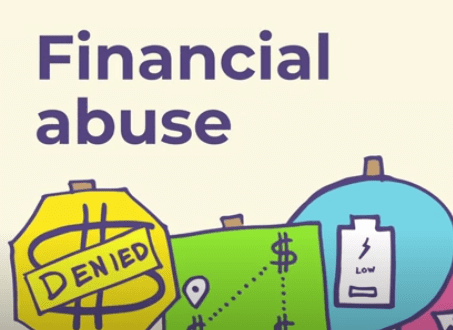· Credit management company Lowell has conducted research to raise awareness surrounding financial abuse in the UK
· Almost one in five British adults have experienced financial abuse (21% of women, 15% of men)
· Natasha Saunders, an active campaigner against financial abuse, shares her experiences
Research shows that almost one in five (18%) of British adults have experienced financial abuse in a current or past relationship. Of this, one in five women (21%) and one in seven men (15%) have been a victim.[1]
Financial abuse is a type of domestic abuse where someone has power over you and your finances. There are several types of financial abuse, and sadly it can happen to anybody – regardless of age, gender or ethnicity.
Credit management company Lowell has conducted research to reveal how confident Brits are in spotting the signs of financial abuse, in order to raise awareness around the hard-hitting topic.
Brits’ experiences and awareness of financial abuse
Lowell asked their Customer Panel[2] about their experience with financial abuse, and found that 37% have been a victim of it directly, or know of someone who has.
When it comes to the different forms of financial abuse, over half (51%) of respondents mentioned someone spending money without telling you. Over two-fifths (41%) brought up someone deliberately withholding funds to stop you from seeing other family and friends, and finally, 38% said that their abuser kept track of every single thing they buy.
Lowell also conducted a separate survey asking Brits[3] how confident they would be in being able to spot the signs of financial abuse. One in six (15%) admitted that they don’t know the signs to look out for.
For those looking to understand more about financial abuse, these are some signs to look out for[4]:
· Being asked to prove where you’re spending money and what on
· Telling you how you can, and can’t, spend your money
· Adding their name to your account or taking control of your accounts
· Leaving you to pay off debt after making you take out money or getting loans in your name
· Preventing you from accessing your accounts
Natasha Saunders, an active campaigner and independent consultant for causes against domestic abuse, spoke to Lowell about her experiences:
“Financial abuse is a crippling pandemic that has been occurring since time began. Speaking out about financial abuse often brings ridicule and disbelief. Having your bank accounts monitored, keeping receipts to prove the cost of things, and having vital things such as sanitary products or food withheld is abuse. Those are all things I suffered with my ex-husband.
“I’m over 7 years free of his hold now, married to my best friend and yet my credit score is a joke. I have debt from when I was with him because he put my name on the bills, I have debt from fighting him in family court to keep my children safe. I still feel like I need to justify a purchase or explain an expense to my husband who always kindly brushes it aside and reminds me he doesn’t need to know because I’m my own person. The dark cloud of money worries my ex has left me with won’t vanish any time soon, the lasting legacy of financial abuse cripples many survivors’ lives long after they leave, and some even go back because the step into the unknown is scarier than the devil they know.”
John Pears, UK CEO at Lowell, adds:
“The results from our research around financial abuse are both shocking and deeply upsetting to read. The lasting impact of financial abuse can be devastating, but it’s important to know that if you, or someone you love, are at risk from suspected financial abuse, you are not alone. There are many specialist organisations who can help.
At Lowell, we put our customers’ wellbeing first, and we’ll always make sure customers can access the support they need by sharing where to find independent support and advice services.
You can also find more information about the signs of domestic abuse and information on support and helplines available on the GOV website, or you can contact Refuge’s National Abuse Domestic Helpline directly on 0808 2000 247.”
For more information on Lowell’s financial abuse campaign visit: https://www.lowell.co.uk/about-us/lowells-blog/financial-health/how-many-brits-have-dealt-with-financial-abuse/
Help keep news FREE for our readers
Supporting your local community newspaper/online news outlet is crucial now more than ever. If you believe in independent journalism, then consider making a valuable contribution by making a one-time or monthly donation. We operate in rural areas where providing unbiased news can be challenging. Read More About Supporting The West Wales Chronicle


























